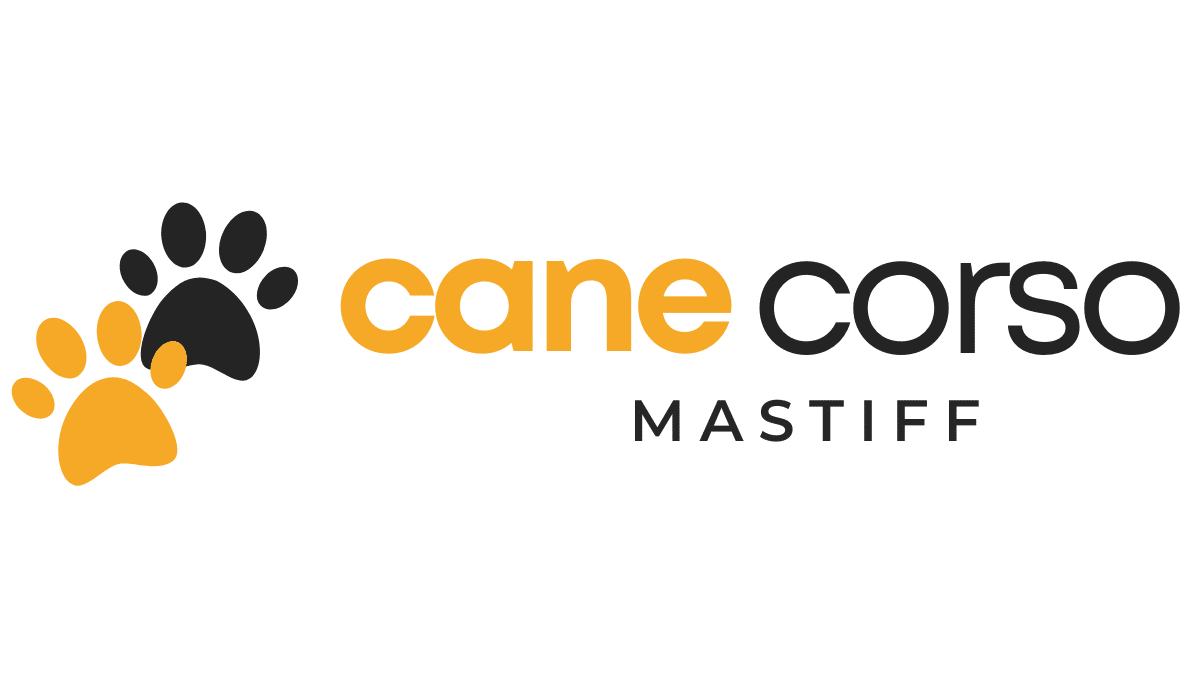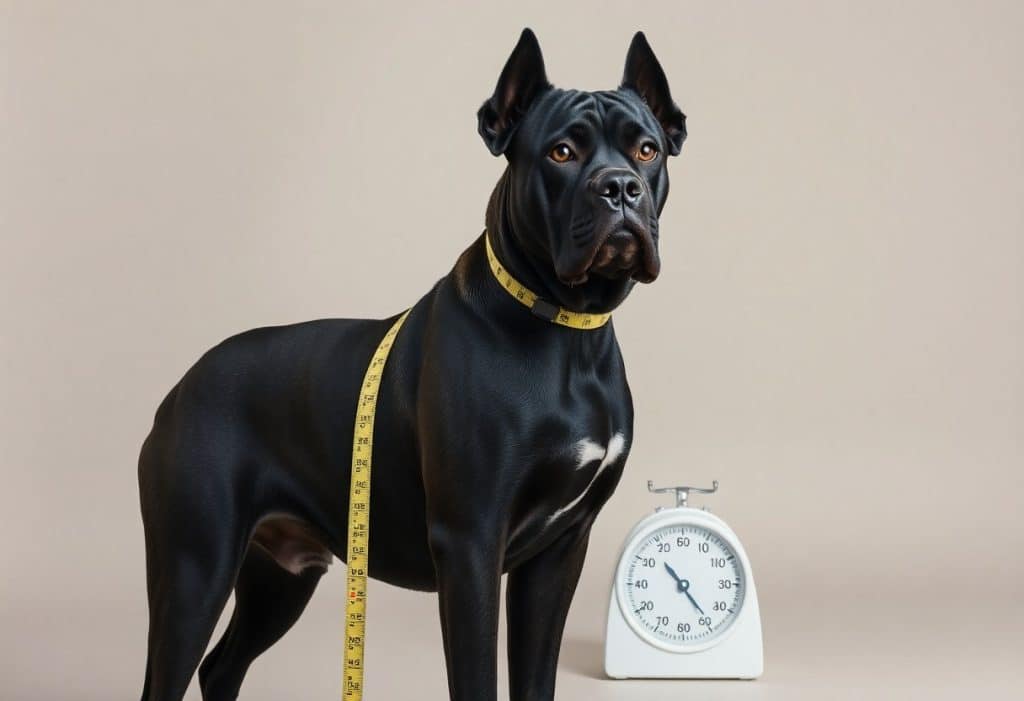Many potential Cane Corso owners find themselves captivated by the breed’s impressive stature and commanding presence. As you consider adding this powerful dog to your family, it’s crucial to understand the size and weight characteristics that define the Cane Corso.
These factors not only affect your daily life but also your dog’s health, training requirements, and living arrangements.
In this post, we will explore three key considerations regarding the size and weight of Cane Corsos, ensuring you are well-informed before making a decision.
Key Takeaways:
- Size Ranges: Cane Corso dogs typically weigh between 90 to 120 pounds and can stand 24 to 28 inches tall at the shoulder.
- Growth Factors: Factors such as genetics, diet, and exercise can significantly influence the growth and eventual size of your Cane Corso.
- Space Requirements: Due to their larger size, Cane Corso dogs require ample living space and regular exercise to maintain a healthy lifestyle.
Understanding Cane Corso Size
Your Cane Corso’s size is one of the most significant aspects to consider when bringing this breed into your home.
Recognizing their dimensions will help you prepare for their needs, environment, and overall care.
As a breed known for its impressive size, understanding how this impacts your lifestyle and space is necessary for ensuring a harmonious relationship with your new companion.
Typical Size Ranges
Around 24 to 28 inches tall at the shoulder, Cane Corsos typically weigh between 90 to 120 pounds. Males tend to be larger than females, often exhibiting a more pronounced muscle structure.
Their robust build contributes to their powerful presence, making it necessary for potential owners to be physically prepared to handle a dog of this size.
Growth Patterns
With a unique growth pattern, Cane Corsos grow rapidly during their first year, reaching about 75% of their adult size by six months. After this period, their growth slows significantly, and they usually reach their full size by around 18 to 24 months.
Understanding these patterns can help you anticipate their needs as they transition from an energetic puppy to a well-muscled adult.
Size plays a vital role in a Cane Corso’s development and care. Proper nutrition during their growth phase is necessary for supporting their rapid muscle and bone development.
Additionally, providing adequate exercise is important for keeping their weight in check and promoting healthy joint development. As they reach maturity, monitoring their weight and size becomes critical to ensure they don’t suffer from obesity-related health issues.
By being aware of their growth patterns, you can proactively manage their health and well-being.
Cane Corso Weight Considerations
Assuming you’re interested in bringing a Cane Corso into your life, understanding their weight is crucial. This impressive breed can vary significantly in size, which directly impacts their care, diet, and overall health.
Being aware of their weight considerations will help you provide the best environment and lifestyle for your future companion.
Average Weight for Males and Females
Weight for male Cane Corsos typically ranges from 110 to 150 pounds, while females usually weigh between 90 and 110 pounds.
Understanding these averages is vital for ensuring your dog remains within a healthy weight range throughout its life.
Factors Influencing Weight
The following factors significantly influence your Cane Corso’s weight:
- Age
- Gender
- Diet
- Activity Level
- Genetics
Thou may want to keep an eye on these elements to help maintain your dog’s ideal weight.
Even small changes in your Cane Corso’s life can affect their weight. For example, an increase in activity level may require a corresponding adjustment in their diet.
Additionally, genetics can play a significant role; some lines may naturally tend to be heavier than others. Pay attention to your dog’s body condition to ensure they remain healthy.
Thou should consult a veterinarian for personalized advice on managing your dog’s weight.
Health Implications of Size and Weight
All Cane Corsos require special attention to their size and weight as it can significantly impact their overall health.
Larger breeds often face unique challenges, and understanding the potential issues related to their size can help you ensure your dog’s long-term well-being.
By being proactive in your care, you can reduce the risk of health problems associated with excess weight or improper growth rates.
Common Health Issues Related to Size
One common health issue arising from the Cane Corso’s substantial size is hip dysplasia, which can lead to chronic pain and mobility challenges.
Additionally, these dogs are prone to certain heart conditions and bloat, both of which can be exacerbated by carrying excess weight.
Awareness of these predispositions allows you to take preventative measures to promote a healthier life for your pet.
Maintaining a Healthy Weight
Related to the overall health of your Cane Corso, maintaining a healthy weight is imperative in preventing weight-related issues.
A balanced diet tailored to your dog’s specific needs, combined with regular exercise, is vital for keeping your dog in optimal shape.
Consequently, implementing a consistent feeding routine and monitoring your Cane Corso’s caloric intake allows you to control their weight effectively.
Incorporating daily exercise, such as walks and playtime, not only helps maintain a healthy weight but also supports their physical and mental well-being.
Keep an eye out for any signs of obesity, such as difficulty breathing or lethargy, and consult your veterinarian if you notice troubling changes.
By being proactive, you can help ensure your Cane Corso leads a happy and active life.
Training and Socialization Strategies
Keep in mind that effective training and socialization are key to raising a well-adjusted Cane Corso.
Your approach should focus on consistency, positive reinforcement, and exposing your pup to varied experiences, environments, and people.
This foundation will help shape your dog’s behavior and temperament, allowing them to thrive within your family and community.
Importance of Early Training
Strategies for training your Cane Corso should start as early as possible.
Early training helps instill positive behaviors and ensures that your dog learns boundaries and commands, making them a more obedient and manageable companion as they grow.
Getting an early start can set the stage for a well-socialized adult dog.
Socialization Techniques for Large Breeds
With a strong emphasis on socialization, it’s imperative to introduce your Cane Corso to a variety of experiences.
Start socializing your puppy with different people, other dogs, and environments to lessen the chance of developing aggressive behavior and anxiety.
Frequently exposing your Cane Corso to new situations will help them adjust to various stimuli.
Indeed, socialization techniques for large breeds involve structured exposure to different environments and situations.
Consider arranging playdates with well-behaved dogs, visiting dog parks, or attending group training sessions.
Such interactions will help your Cane Corso become accustomed to various social settings, minimizing the risk of developing fear or aggression.
Supervision is important, as you want to ensure these experiences remain positive.
The goal is to foster a confident, friendly demeanor, making your Cane Corso a respectful and trusted companion in diverse situations.
Nutrition and Diet
Once again, understanding your Cane Corso’s nutritional needs is crucial for ensuring their overall health and wellbeing.
A balanced diet helps maintain their ideal weight, supports muscle growth, and contributes to a shiny coat.
Selecting high-quality dog food that meets their size and age specifications will lead to a more energetic and happy companion.
Nutritional Needs by Size and Age
Across various stages of their life, Cane Corso’s nutritional requirements differ significantly.
Puppies require higher protein levels for growth, while adult dogs benefit from a balanced diet aimed at maintaining their energy and muscle mass.
Senior dogs may need a lower-calorie diet to prevent obesity while ensuring they receive the right vitamins and minerals for aging joints.
Recommended Diet Plans
Before choosing a diet plan, it’s important to assess your Cane Corso’s size, age, and activity level.
A mix of high-quality dry kibble and wet food can be beneficial. Make sure the food is rich in animal protein, low in fillers, and contains crucial fatty acids for skin and coat health.
Always consult with your vet for tailored recommendations regarding your dog’s specific needs.
At its core, a well-structured diet for your Cane Corso should be based on their unique characteristics.
Incorporate high-quality ingredients and monitor their weight to prevent obesity-related issues.
Pay attention to any adverse reactions and adjust their diet accordingly. Supplementing with fresh fruits and vegetables can provide additional vitamins but ensure everything is safe for dogs.
Regular veterinary check-ups will help you maintain an optimal diet that supports their health and longevity.
Finding the Right Cane Corso for You
Despite the popularity of the Cane Corso breed, selecting the right dog for your lifestyle requires careful consideration.
You’ll need to evaluate factors such as size, temperament, and energy levels to ensure that your new companion will fit seamlessly into your home.
Understanding the breed’s characteristics will help you decide whether this loyal and protective dog is the best choice for you and your family.
Breeder vs. Rescue Options
With the decision to bring a Cane Corso into your life, you have the option to choose between acquiring one from a reputable breeder or considering a rescue organization.
Breeders often provide dogs with specific lineage and health guarantees, while rescues can give you the chance to save a dog in need of a second chance.
Weigh both options to find the best match for your needs.
Assessing Size and Weight at Adoption
Any potential owner will need to take into account the size and weight of a Cane Corso when adopting.
Larger dogs require more space and can exert more strength, which impacts their training and handling.
Be sure to ask about the dog’s history, dietary habits, and exercise routines to get a comprehensive understanding of their future size and weight.
Understanding the size and weight of a Cane Corso during adoption is vital for your planning and adaptability.
These dogs can grow to be quite large, often weighing between 90 to 120 pounds, which means they require ample space in your home.
Assess the dog’s current weight and body condition to anticipate future growth. Also, consider their exercise requirements, as larger dogs need consistent activity to maintain their health.
Make an informed decision to ensure a lifelong harmonious relationship with your Cane Corso.
Conclusion
With this in mind, understanding the size and weight of a Cane Corso is crucial for potential owners like you.
These dogs are not only powerful and imposing, but they also require adequate space and proper training to thrive in your home.
Assess your living situation, lifestyle, and ability to meet their physical and emotional needs, ensuring that you can provide a nurturing environment for this remarkable breed.
By considering these key aspects, you can make an informed decision about welcoming a Cane Corso into your life.

